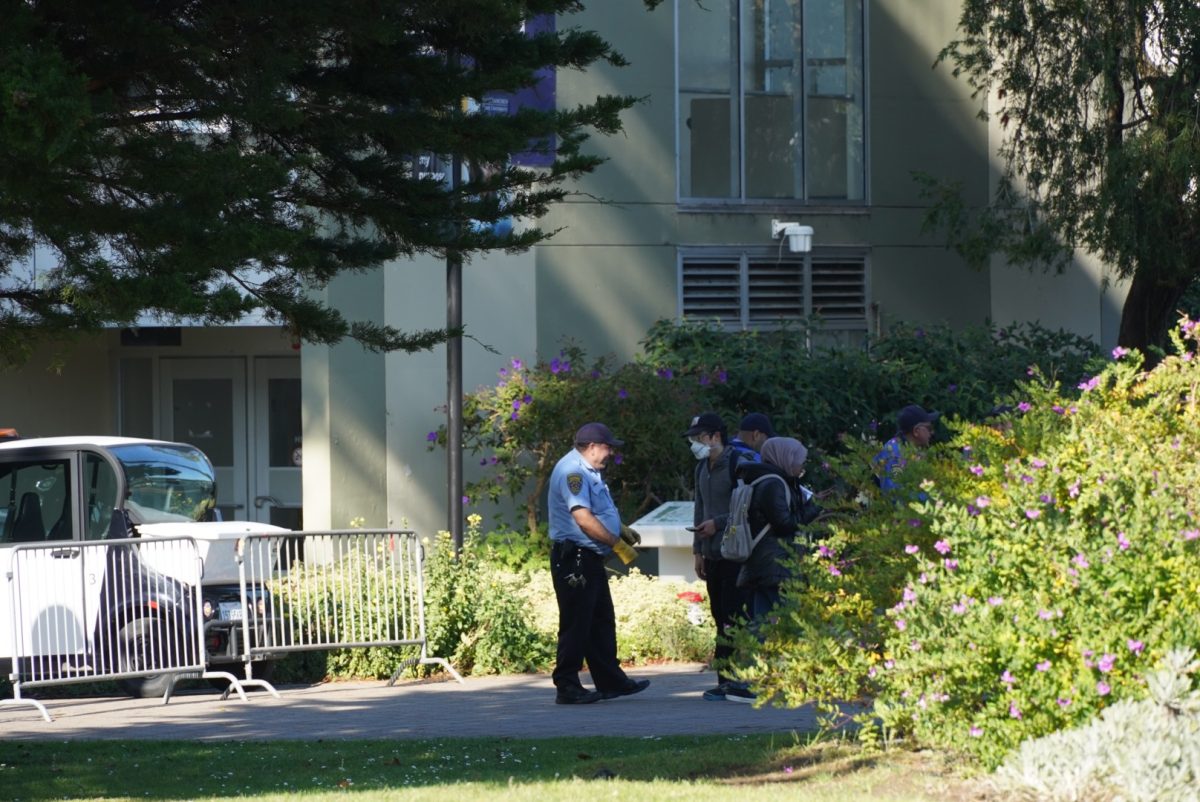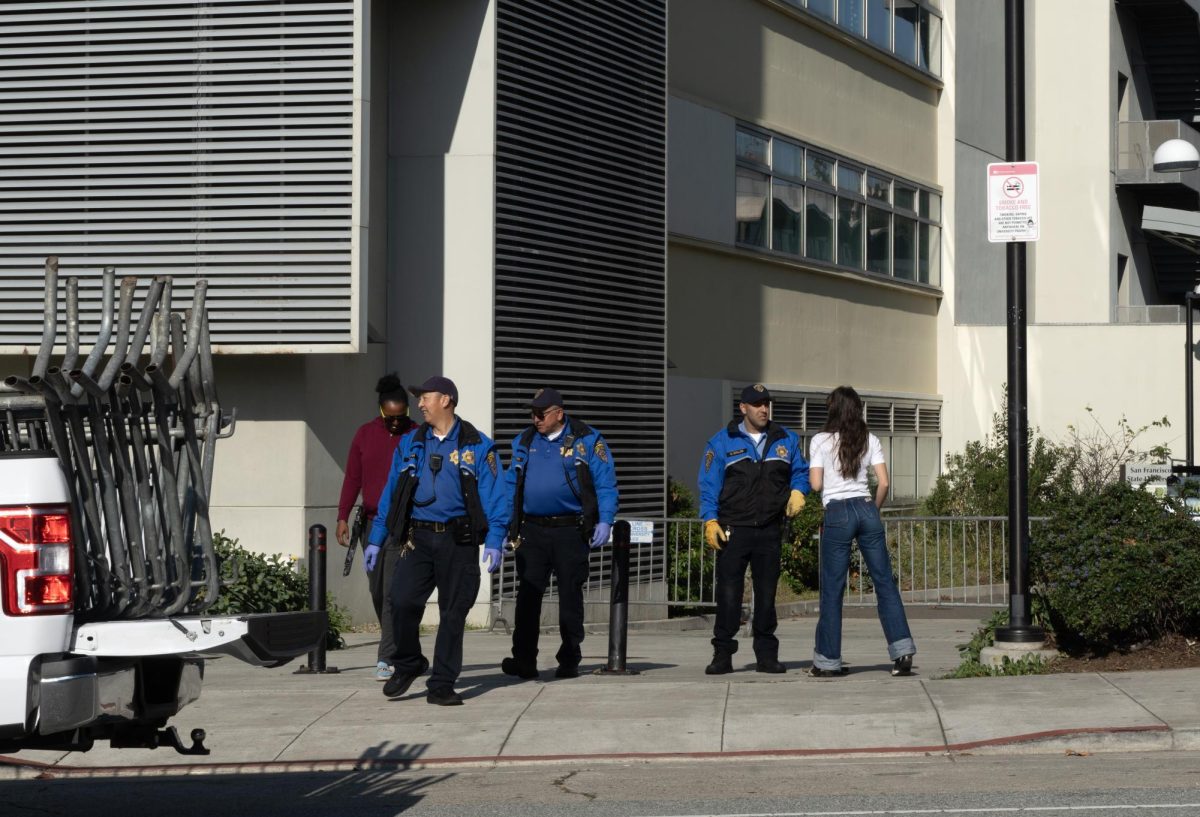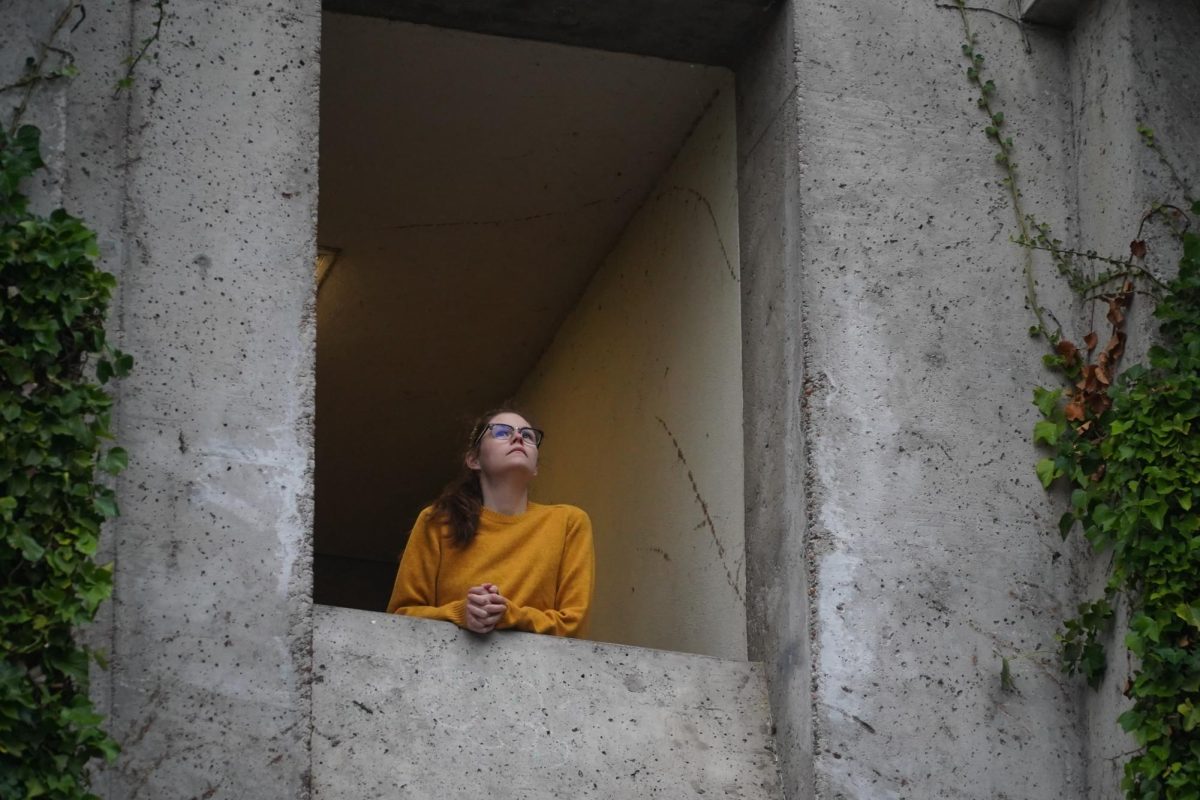Seven of the 14 multicultural Greek organizations came together Sept. 5 in Jack Adams Hall to celebrate the second annual Meet the Multicultural Greeks event.
The night showcased half of the multicultural Greek organizations to the students of SF State, with fraternities and sororities demonstrating their hand signs and chants. Each organization presented what they were about, what they do to help society and what it means to be a part of Greek life.

“It’s liberating for organizations to have these spaces because back in the day we didn’t have circles like this to feel included. Now we do,” said Jon Ray Guevarra, former Multicultural Greek Council president and current president of Epsilon Sigma Rho. “We find purpose in being able to be with each other in solidarity.”
The Multicultural Greek Council is one of the biggest organizations at SF State, but not many people know who they are. President of the MGC Mamunna Gorsi and the other members of the council used this event to tell the SF State students what each participating sorority and fraternity has to offer. Members of the MGC also gave testimonials on how being part of Greek life has helped them through college.
“Ever since I joined a sorority I’ve learned professionalism: how to talk in business meetings, how to go to interviews, how to give a proper handshake — things I wouldn’t learn in a classroom,” Gorsi said.

Gorsi added, “A lot of our organizations are local, meaning a lot of our organizations are just based here in the Bay Area or a few chapters around California we are not nationwide.”
Most non-multicultural Greek communities are in the United States, whereas multicultural Greek communities are more local.
Multicultural Greek communities do not have the same support as other national organizations on campus. However, that does not stop them from doing community work. Many of the organizations such as Alpha Kappa Omega, have done clean-ups. Lambda Chi Mu have participated in women empowerment marches and Phi Gamma Chi is currently working with George Mark Children’s House, an organization that focuses on children with life changing illnesses.
The term multiculturalism was used many times throughout the event. Many of the fraternities and sororities under MGC focus on one ethnic background. For example, Kappa Delta Phi is an Asian-interest sorority. Yet, most of the organizations heavily emphasized that they are accepting of everyone, regardless of their sexual orientation, race, ethnicity or nationality.
The MGC was established in 2017. The members of the council use their platform to unite all culture-based Greek organizations, as well as empower and support them. The MGC works on networking, promoting academic success and encouraging multiculturalism.
“We want to impact the SF community, we want to emphasize that multiculturalism is a big thing, especially living in a diverse city,” Cameron Willform-Baker, vice president of marketing for MGC, said. “No matter where you’re from and what your conditions may be, you are welcomed and are a part of our family.”

Many of the organizations and their members have referred to Greek life as their “home away from home.” The different members of the sororities and fraternities said that they feel accepted in a community that is so diverse. Being a part of Greek life also encourages them to give back to the community without the need of wearing to the name of their organization.
“[In] my time as a brother (member) we have been doing a lot of community work, so it inspires me to do community work without wearing my letters,” said Mike Casino of Alpha Kappa Omega.
The atmosphere of the event was family-filled and supportive, as each organization cheered for the others when they described their varying types of community outreach and shared memories and personal experiences of Greek life.
“At SF State, we’re diverse,” Gorsi said. “We have many cultural organizations on campus who highlight the different cultures and I feel like it’s important to have these cultural organizations because they were founded for a reason.”









